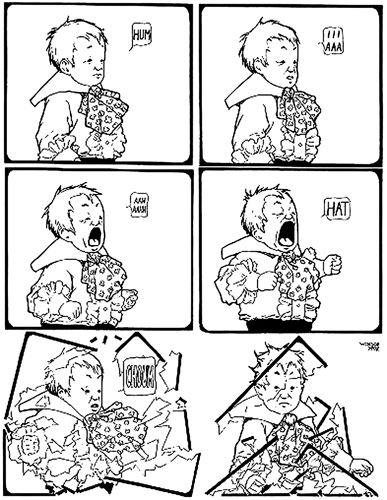An S A now I mean 2 write
2 U sweet K T J,
The girl without a ∥,
The belle of U T K.
I 1 der if U got that 1
I wrote 2 U B 4
I sailed in the R K D A,
And sent by L N Moore.
My M T head will scarce contain
A calm I D A bright,
But A T miles from you I must
M{ this chance 2 write.
And first, should N E N V U,
B E Z, mind it not.
Should N E friendship show, be true:
They should not be forgot.
From virt U nev R D V 8;
Her influence B 9
Alike induces 10 dern S,
Or 40 tude D vine.
And if you cannot cut a —
Or cause an !
I hope U’ll put a .
2 1 ?
R U for an X ation 2,
My cous N ? — heart and ☞
He off R’s in a ¶
A § 2 of land.
He says he loves you 2 X S,
U R virtuous and Y’s,
In X L N C U X L
All others in his I’s.
This S A, until U I C,
I pray U 2 X Q’s,
And do not burn in F E G
My young and wayward muse.
Now fare U well, dear K T J,
I trust that U R true–
When this U C, then you can say,
An S A I O U.
— Charles Carroll Bombaugh, Gleanings for the Curious From the Harvest-Fields of Literature, 1890












